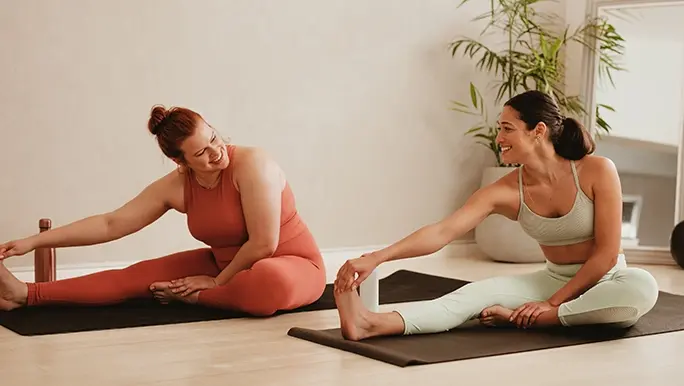Urinary Incontinence. Let's talk about leaking.

Dr Nikki Stamp writes: I am an avid fitness fan, and particularly love high intensity exercise. When a workout involves box jumps or skipping, you can guarantee that lots of the women in the class make a quick dash to the bathroom to pee so that they don’t have any accidents mid-workout.
These women are of all ages, some have had kids and some never have, but all are filled with dread at anything that might cause a very unwanted leakage of urine.
What is urinary incontinence
Urinary incontinence is when you leak urine unintentionally. This can range from leaking a little bit of urine to something much more.
Urinary incontinence is extremely common, occurring in up to 38% of women and 10% of men in Australia. Despite the fact that we associate this with happening in older people, over half of women who have incontinence are under the age of 50 years.
Different types of urinary incontinence
There are a few different types of urinary incontinence, but two of the more common types include :
- Stress urinary incontinence is when you leak a little urine when you cough, laugh, sneeze or do some movements or exercise. It can happen in those who have never had children but is also commonly associated with pregnancy and childbirth.
- Urge incontinence is when you leak some urine which is associated with a very sudden need to pass urine. Normally the bladder can hold large volumes of urine and you control when you want to urinate. With urge incontinence, even with smaller volumes that a bladder could normally handle, there is an intense need to pee.
What causes urinary incontinence
Depending on type of incontinence, there are lots of different causes of urinary incontinence. The most common causes are:
- Pelvic floor muscle dysfunction
- Pregnancy and childbirth
- Prostate surgery
- Pelvic conditions or medical treatment
- Constipation
- Neurological (brain and nerve) conditions
- Chronic cough
- Overweight and obesity
- Exercise even in women who haven’t had children
How to manage leaks
Since urinary incontinence can seriously impact on your quality of life, it’s important to seek help and advice so you can get on with doing the things that are important to you.
First things first, if you have problems with leaking urine at all, catch up with your GP to make sure there are no medical causes that need treatment. Depending on your symptoms, some tests of your bladder function may be useful to find out what is causing your leakage and target treatment.
You can also consult with a pelvic floor physiotherapist who can help with ways to manage and treat urinary incontinence which may include pelvic floor exercises if that’s appropriate for your condition.
The National Continence Hotline is also an important resource you can access to help with your symptoms and provide support.
Some general things that you can do to help with continence include:
- Being physically active (without exacerbating your leaking!)
- Maintain a regular toilet habit including managing any constipation
- Use pads or underwear designed to help with leakage
Don’t forget that just because urinary incontinence is common does not mean that you have to tolerate it.
Related reads


Pelvic floor 101 - what you need to know
Pelvic floor issues are common, but they don't need to be tolerated. Find out how you can maintain your pelvic floor health with tips from Dr Nikki Stamp.


Menopause - the facts women need to know
Menopause can remain a bit of a mystery and prone to misinformation. So let’s dive in and find out what the real deal is when it comes to menopause.
Dr Nikki Stamp is an Australian trained cardiothoracic surgeon and PhD candidate. She has a strong desire to change the way we think about health and is a passionate supporter of the Heart Foundation and women's heart disease advocacy. Nikki is a previous member of the healthylife Advisory Board.
Reviewed by the healthylife Advisory Board September 2022.
This article is for informational purposes only and does not provide medical advice, diagnosis, or treatment. Any information published on this website or by this brand is not intended as a substitute for medical advice. If you have any concerns or questions about your health you should consult with a health professional.